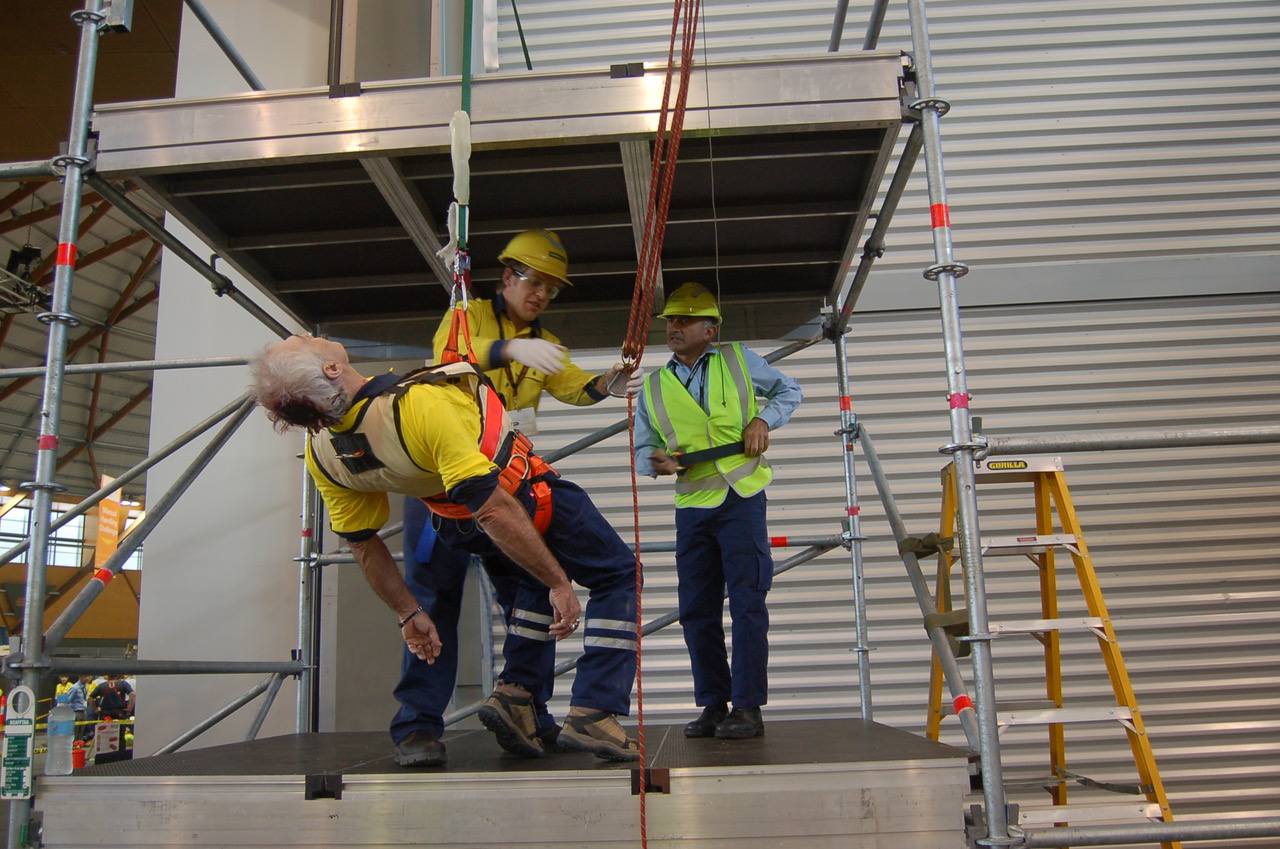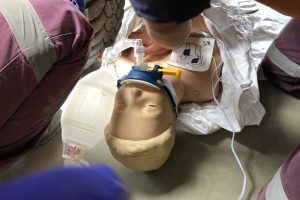First real traumatic job – Neck slicing
It was quite a cool Autumn morning, when Ollie and I were tasked to respond to someone
with a laceration, little did we envisage what that would entail.
Ollie pulled the vehicle up to the curb. It was your average timber and fibro house which
was originally a housing commission house, with a fibro garage to the side and rear of the house. There, standing behind a low timber and wire fence was a gentleman in his forties.
The look of fright and urgency in his face instilled a sense of dread and urgency in me, that was a new sensation. This looked like it was going to be the first time I had to deal with some serious trauma.
The casualty’s son, David, directed us to the side door of the garage, where I first noticed a pool of blood near the door jamb as we turned to enter the doorway. That’s when I saw his reason for concern.
His father was sitting on the concrete floor, propped up against the timber workbench.
What took all of my attention was the large laceration, starting just under his right ear,
across the front of his neck and rising part way toward the left jaw line. All of the interior of the front of his airway, jugular veins on either side were exposed. I could even see the
pulsing of his carotid artery. The skin from the front of his neck had peeled back, and hung like soggy cling film from the wound.
There were multiple small cuts bleeding slowly, adding to the cascade of slick, dark blood on his pyjamas and all around him on the floor. His skin was ice cold to the touch, and the blood so slick that I could not take hold of his pyjamas to try to move him into a position to assess the damage to his neck.
Ollie told me to get the large pads out of the first aid kit and apply them to the wound. He
was a slender built gent, with very little fat on his body, so there was really just skin over
muscle, and it all moved when having pressure applied. That was when I looked into his
eyes.
The sad look of hopelessness in his face told me it all. He wanted to die, and here we were, doing our best to stop that from happening. Because of the location of the wound, my only option to keep the dressing in place was to manually hold it in place with both of my hands.
Ollie took over the pressure to allow me to cut the shirt away to search for further wounds, and I couldn’t even take hold of the material because it was saturated by blood from the wound.
Then I noticed something that initially startled me.
Laying on the floor, next to his right hand was a pair of blades belonging to an electric
carving knife. This is what he used to slice his throat open. Moving them carefully out of his reach, for his safety and ours, I examined him for further wounds, of which there were none. At this stage I took over control of the wound from Ollie as he organised the stretcher as close as he could get it to the garage door. I didn’t even notice that Ollie had gotten a cannula into the patients arm, to put up some fluids to maintain his blood pressure.
Up until this job, I had not seen Ollie move with such purpose and focus. It instilled
confidence in me to see him work this way.
We loaded the gentleman onto the stretcher, and as there was no practical way of
bandaging the pads into place without compromising his airway, I was left with the task of holding them there, all of the way to the hospital. I continually spoke, in a calm and
reassuring voice to him as we loaded him into the ambulance carefully, to allow me to keep the dressings on his neck manually. Ollie was exceptional with the way that he handled the ambulance, taking care not to buffet us around during the trip, and transported him to the hospital under lights and siren, with me holding the dressings to his throat the whole way there. The saddest part for me was the fact that I could see the lost look of desperation in his face, realising that he had not succeeded in something he had obviously wanted to succeed in.
The whole time he never said a word, but his eyes spoke volumes. The tears rolling down his cheeks almost had me crying in sympathy with him.
On arrival at the hospital, he went straight into the resuscitation bay, and the doctors and
nurses were straight into action mode, cutting clothing, calling xray, and getting the
registrar in to see what we had.
I called David into the resuscitation room with us to supplement the limited information I
had for my handover to the staff, and to give him some reassurance that we were doing all that we could for his father.
I also had a few questions that I needed to ask him.
This is where the case got even sadder.
What I had found out from him, was that this was not his fathers’ first attempt at taking his own life. It was the third.
About 5 years prior, David’s mother had had a major stroke, which incapacitated her to the point where she became dependant on full time help. His father could not bear for her to be in an aged care facility, so he took it upon himself to care for her at home by himself. He modified the house to make it easier to move her around and care for her, and undertook all of the care requirements for the love of his life.
Unfortunately, she died not long after, due to complications from the stroke.
His father could not bear to live without her, so he tried to overdose on sedatives, which
obviously didn’t work.
The second time he tried to kill himself by putting a fork into the toaster, but succeeded
only in burning his hand. At that, he was admitted The second time he tried to kill himself by putting a fork into the toaster, but succeeded only in burning his hand. At that, he was admitted to a psychiatric ward for a short stay, and then to a care facility.
When it was determined that he was no longer a threat to himself, he was discharged
home. This was now his third attempt.
We found out the following day that they had surgically repaired the damage and he was in the high dependency ward. We made enquiries on him multiple times over the next weeks, and even visited him once up in the ward to say hello.
He was quite chatty, and a lovely man to talk to. Very polite and courteous, even thanking
us for helping him.
What a lovely gentleman he was, with a very sad story to tell. I have no doubt that he would eventually succeed one day soon in meeting up with his beautiful wife.




